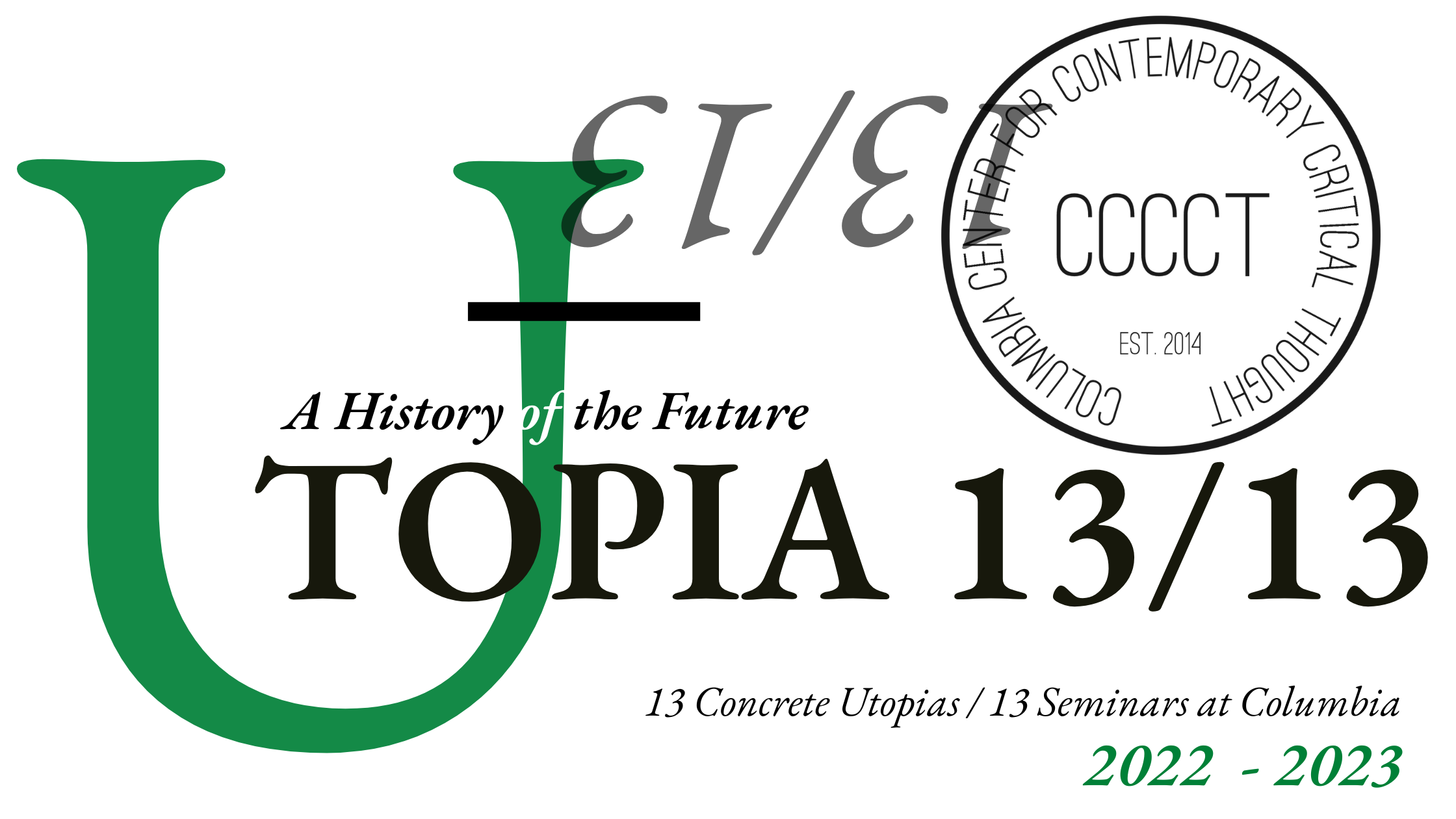“Greatly admire what you are doing. The hope for the future.”
— Noam Chomsky
Utopia 13/13 in Berlin with Rahel Jaeggi and Martin Saar
On November 24, 1971, Michel Foucault opened his lectures on Penal Theories and Institutions with these two words:
“No introduction.”
“The reason for these lectures?” Foucault asked. “One has only to open one’s eyes.”
At the time, Foucault was referring to the crack-down on students by the French government of then-President Georges Pompidou following the May ’68 Revolution. Without introduction, Foucault launched into a historical analysis of government repression, while he simultaneously engaged in concrete actions, working to abolish prisons with the other members of the Prisons Information Group.
The punitive society still surrounds us today. But we now face as well other cataclysmic crises—global climate change, increasing pandemics, extractive capitalism, the expository society, violent political polarization and counterrevolutions—that are pushing us all to the limit.
“No Introduction”
Once again, no introduction is necessary today. One need only open one’s eyes. Crises are staring us in the face. We are past the time for diagnosis. We do not need to describe global warming, we need to reverse it. We do not need to critique pandemic measures, we need to end pandemics. We do not need another genealogy of white nationalism, we need to extinguish it. In sum, we do not need more theories of krise und kritik or Zeitdiagnose, we need praxis and utopia.
But so many of us are so overwhelmed, so depressed. We feel so hopeless today, in the face of these seemingly insurmountable crises, that it is hard to even imagine where to start. We desperately need positive constructive thinking. We urgently need to look around, identify, and pursue concrete utopias.
Concrete Utopias
There are solutions to our crises. They surround us, often hidden in plain sight. We need to see them now and actualize them, support them, grow them, empower them. It is time to roll up our sleeves and realize now, in real time, our concrete utopias.
This year at the Columbia Center for Contemporary Critical Thought, we will explore different experiments and models to reorganize society to address head on our current crises—really-existing, actually-existing, concrete utopias.
There will be no room, this year, for dystopias. We are too familiar with our present. We know its history. This year, we will write together a history of the future.
Welcome to Utopia 13/13!

“Utopiæ insulæ tabula.” Woodcut map, December 1518, from Thomas More’s Utopia.
